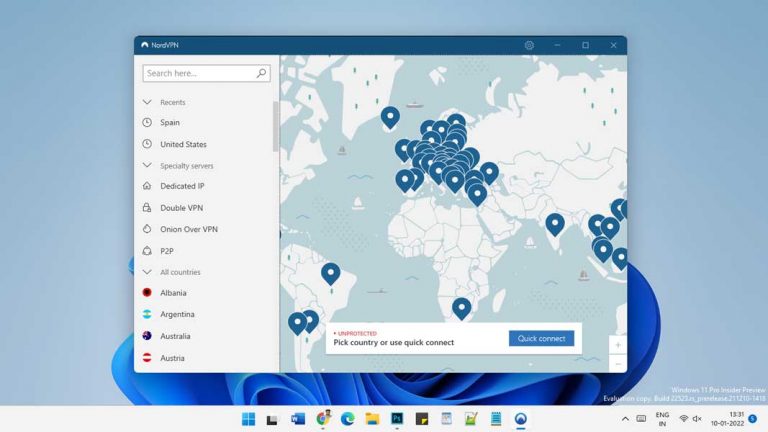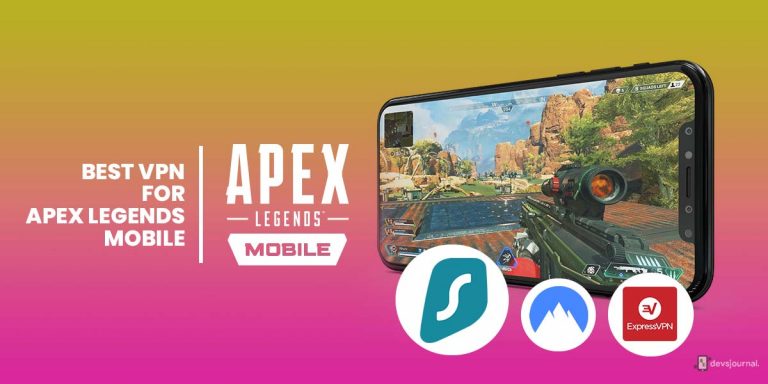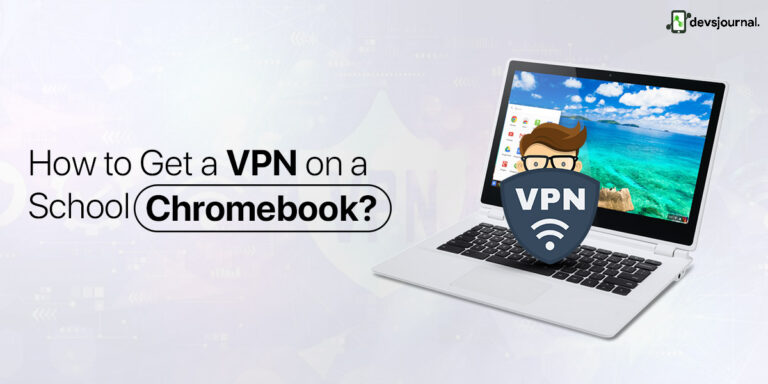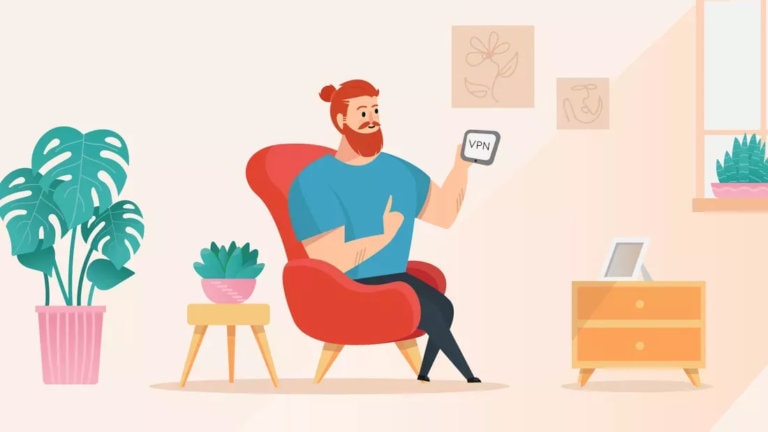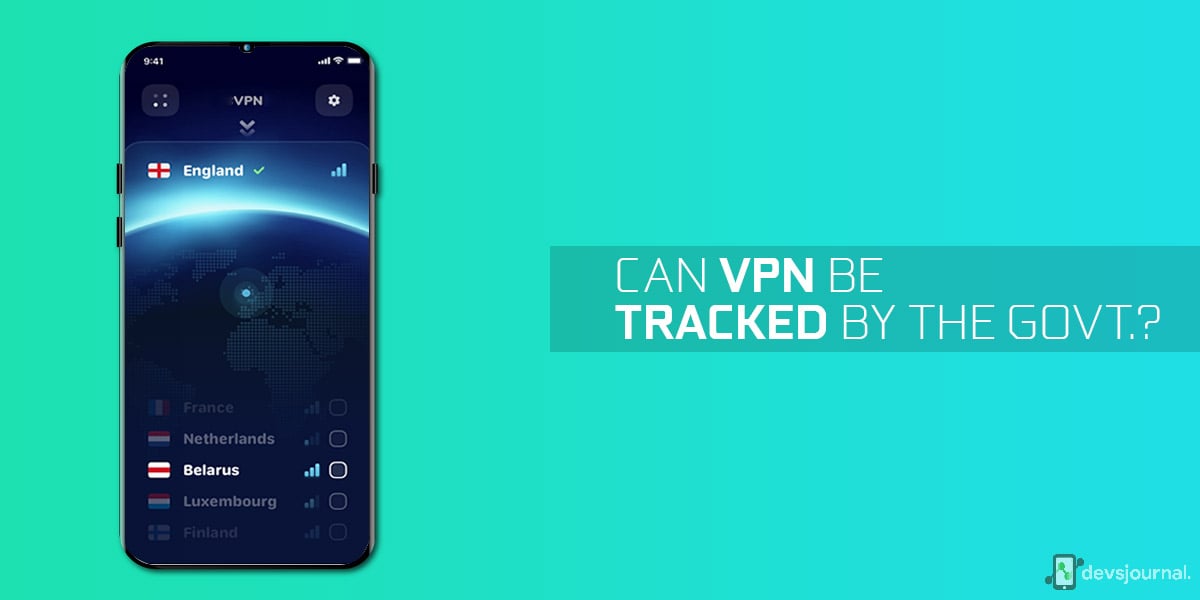
VPN, also called Virtual Private Network, is a way to mask your IP Address and location on the internet. When you connect to a network, your device has an IP address that can track things like your location, browsing history, etc. VPN masks your actual IP address and uses a different IP address from an overseas server. One of the key selling points of several VPN companies/services is the ability to keep your data secure from authorities and remain under the radar.
Although many genuine VPN companies like Nord VPN, CyberGhost VPN, and IPvanish can prevent the government from watching or accessing private internet traffic and are considered among best vpn for pcs and laptops, but that doesn’t imply the government can’t know that you’re using a VPN.
Can Government Track VPN?
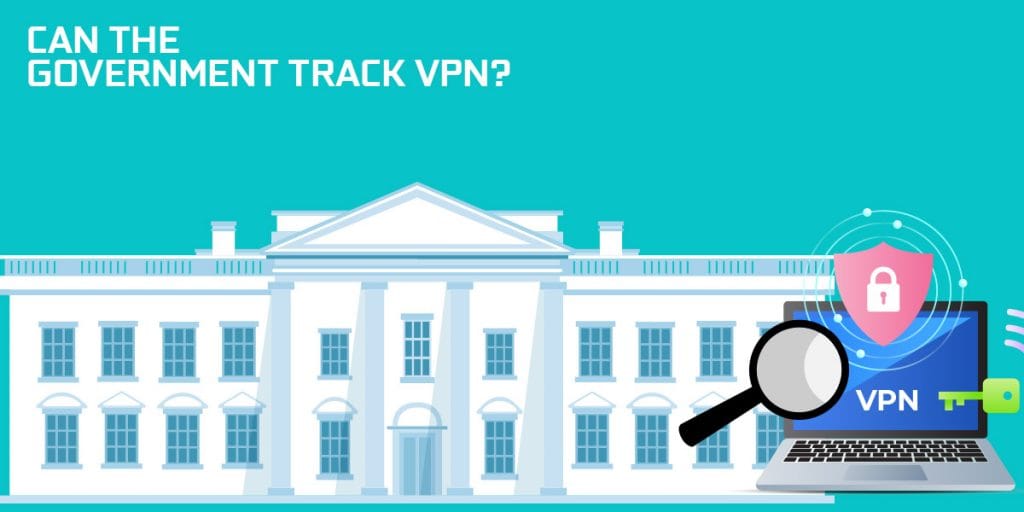
A trustworthy VPN company won’t permit the authorities to examine your internet data since they have clear focus on protecting your online privacy and security. This is only available to you and you alone. Furthermore, in certain countries, VPN companies are compelled to offer the government backdoor access to customer data if necessary. Even though VPN use is legal, some other firms store records containing specific types of user data! These are frequently connection or traffic use logs, including sensitive information.
To answer this question in short, yes, the government can potentially track VPNs. Take China as an example: the Great Firewall of China (GFW) largely depends on deep packet inspection (DPI) to block VPN traffic. In this case, you should choose a VPN provider with obfuscated servers. Aside from obfuscated servers, a no-logging policy is required to circumvent governments’ monitoring measures.
A VPN service should also have security features such as an internet kill switch, DNS leak prevention, and WebRTC leak protection. If your VPN service lacks these capabilities, you might be in hot water and suffer serious consequences like incarceration.
Additionally, free or low-quality VPNs may make it possible for your ISP, the government, and other parties to know exactly what you are doing or where you are even while your VPN is operational. They are also more vulnerable to hackers since their security and privacy safeguards are inadequate. So, to secure yourself as much as possible, choose a well-established and reliable VPN provider if you are using one.
Can a VPN hide Your Activity From Government?
Well, the answer to this question is a little complicated since it depends on the country’s laws regarding the usage of VPN, the VPN company itself and the security the VPN provides to its users. Yes, a VPN is capable of hiding your activity from the government. But, it is only possible when a VPN has really good security. However, many governments require VPN companies to share the user’s data making it impossible to hide your activity from the government.
Can Government Agencies and Police Track your VPN?
Yes, government agencies and police can track your VPN. It is much easier to do so when you are using a low-quality or free VPN. A free VPN service doesn’t offer much protection, and you will need strong security to keep police or government agencies out of your VPN activity. The police force is responsible for detecting and preventing crime within its area. It is also meant to keep the law and order situation under control.
Police, like government organizations such as the FBI (Federal Bureau of Investigation), DEA (Drug Enforcement Agency), and others, can request ISPs to reveal connections or use records regarding a specific VPN user in response to a court order. As previously stated, ISPs are aware of their users that use VPNs frequently. As a result, they can notify the police that they should talk with VPN providers if they wish to collect online location data in connection logs, use logs, or both.
Does Government Decide The VPN Usage?
The government and your ISP can tell whether you’re using a VPN since they can see your internet traffic passing via an encrypted server. There isn’t a way around this because encryption is one of the pillars of VPNs. So, in places where VPNs are outlawed, this is essentially how governments may punish individuals for using them.
However, if using a VPN is legal in your place of residency, this isn’t a major concern. Remember that the authorities can only see that you’re using a VPN in virtually all circumstances. They can’t figure out what you’re doing online, your internet history, or your IP address. All of this data is encrypted by your VPN.
Best VPN Features that Help You to Hide From The Government
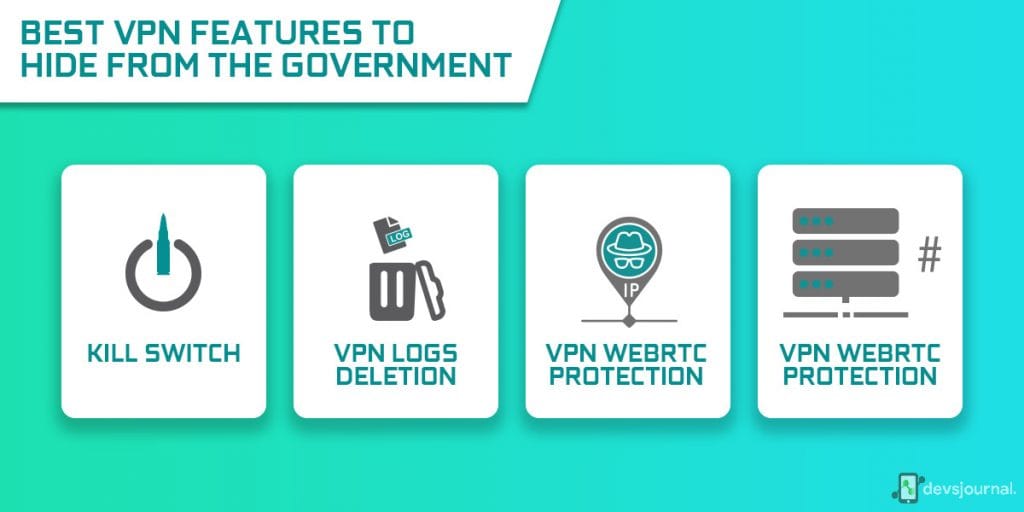
VPN is useful for hiding your online activity, but it is also helpful to access content that might not be available in your region. Especially when you’re using an android phone, privacy is a concern for most. But besides privacy, there’s bunch of other features that make a VPN best for android. However, for this article, we’ll be focusing mainly on the privacy aspect.
1. Kill switch
The VPN Kill Switch protects your device from creating unsecured connections. It constantly checks your connection to the distant server. The VPN Kill Switch prevents your device from accessing the internet (or specific apps) if it is mistakenly disconnected. Using Kill Switch makes your internet traffic safer since it protects sensitive data from inadvertent exposure. It’s your VPN’s last line of protection. Your connection is restricted until the encrypted tunnel is restored or the VPN Kill Switch is off.
For example, what if you activated the VPN and kept it running overnight while downloading files, but the connection dies throughout the night? This would disable secure traffic via the VPN connection, with all web traffic travelling to and from its destination over the ordinary path, as you would usually connect without a VPN.
By switching to the conventional route, the ISP’s IP address becomes accessible, and the VPN safeguards are momentarily discontinued until the VPN connection is restored. All activity, such as website visits, may now be readily traced and documented by the ISP. A kill switch avoids this by severing your internet connection until the secured connection is live.
2. VPN logs Deletion
The history of websites visited may be tracked, and ISPs (Internet Service Providers) often do so by keeping logs on their DNS services. However, if a VPN is used, any possible logs will now be visible on the DNS servers used by the VPN, as well as any other type of logging begun by the VPN.
Using a VPN that does not retain records makes it impossible for any government agency to monitor which websites have been visited. Many VPNs companies market themselves as being able to provide this ‘no logging’ service as the ultimate solution to safeguard privacy.
It’s difficult to show whether this is the case with all the VPNs because some VPNs claim a ‘no logging’ policy yet have provided logs when government agencies have requested them. Demonstrating that they had been maintaining logs and lying about their ‘no logging’ policy in their advertising and sales materials.
3. VPN WebRTC leak Protection
Many common web browsers employ WebRTC for communications, including phone calls, video calling, and various kinds of rapid file transmission. If the VPN being used does not include WebRTC leak prevention, that is, it does not ensure that WebRTC communications only travel over the VPN connection. The WebRTC communication will instead go straight to its destination, circumventing the VPN.
This means that any information of the WebRTC conversation will be logged by the ISP or any other service on the web where the connection to the end destination must pass. Most trustworthy VPNs have features that ensure all WebRTC communication passes through the VPN’s secure channels. WebRTC may also be disabled in web browsers such as Chrome and Firefox.
4. VPN DNS leak Protection
Memorizing a website name is far simpler than remembering its IP address, and DNS offers the ability to transform website names into their matching IP addresses using its mapping database. VPNs with inadequate DNS leak security will cause any queries for an IP address for a website name to utilize the ISP’s DNS service rather than the VPN’s. This means that the ISP will be aware of which websites are being accessed and the dates and hours.
The government might readily collect this information through legal or illegal means since the government could ask the ISP for information on a customer’s usage, typically over a particular time. The ISP maintains complete logs of all client connections. The ISP will provide the authorities with information about the connections made by its customers throughout the required period.
The IP address is not static and is not allocated to the client eternally; rather, it is leased for a set period of time. This does not exclude the ISP or anybody else attempting to determine what the client has been connected to by matching the IP address to the consumer.
Conclusion
The safety you get while using a VPN depends on various factors like the quality of VPN service, the country’s laws and the security measures VPN employs. It might not be the case if you think you are completely safe from the government’s scrutiny. If you truly want to hide from the government, you will have to use a VPN with the highest grades of security or understand how networks work at fundamental levels to avoid getting tracked by the government.
